Related Research Articles

Trinity College is a constituent college of the University of Cambridge. Founded in 1546 by King Henry VIII, Trinity is the largest Oxbridge college measured by the number of undergraduates and has the largest financial endowment of any college at either Cambridge or Oxford.

The University of Cambridge is composed of 31 colleges in addition to the academic departments and administration of the central university. Until the mid-19th century, both Cambridge and Oxford comprised a group of colleges with a small central university administration, rather than universities in the common sense. Cambridge's colleges are communities of students, academics and staff – an environment in which generations and academic disciplines are able to mix, with both students and fellows experiencing "the breadth and excellence of a top University at an intimate level".
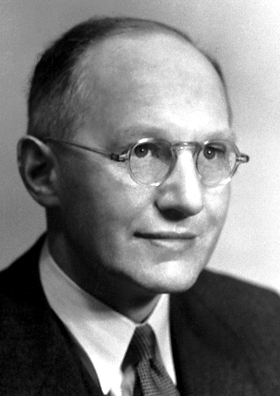
Ernest Thomas Sinton Walton was an Irish physicist and Nobel laureate. He is best known for his work with John Cockcroft to construct one of the earliest types of particle accelerator, the Cockcroft–Walton generator. In experiments performed at Cambridge University in the early 1930s using the generator, Walton and Cockcroft became the first team to use a particle beam to transform one element to another. According to their Nobel Prize citation: "Thus, for the first time, a nuclear transmutation was produced by means entirely under human control."
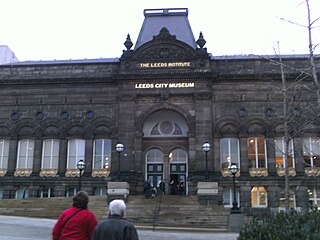
Mechanics' institutes, also known as mechanics' institutions, sometimes simply known as institutes, and also called schools of arts, were educational establishments originally formed to provide adult education, particularly in technical subjects, to working men in Victorian-era Britain and its colonies. They were often funded by local industrialists on the grounds that they would ultimately benefit from having more knowledgeable and skilled employees. The mechanics' institutes often included libraries for the adult working class, and were said to provide them with an alternative pastime to gambling and drinking in pubs.

George Birkbeck FRS was a British physician, academic, philanthropist, pioneer in adult education and a professor of natural philosophy at the Andersonian Institute. He is the founder of Birkbeck, University of London and was head of the Chemical Society. He is one of the creators of the earliest chemistry laboratory for undergraduates at University College London, and is also known for the creation of mechanics' institutes in Scotland and London.
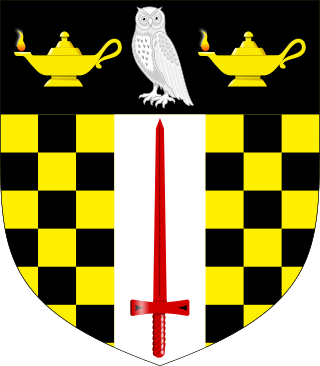
Birkbeck, University of London, is a public research university, located in Bloomsbury, London, England, and a member institution of the federal University of London. Established in 1823 as the London Mechanics' Institute by its founder, Sir George Birkbeck, and its supporters, Jeremy Bentham, J. C. Hobhouse and Henry Brougham, Birkbeck is one of the few universities to specialise in evening higher education in the United Kingdom.
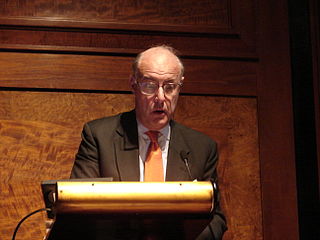
Sir David Nicholas Cannadine is a British author and historian who specialises in modern history, Britain and the history of business and philanthropy. He is currently the Dodge Professor of History at Princeton University, a visiting professor of history at Oxford University, and the editor of the Oxford Dictionary of National Biography. He has been the president of the British Academy since 2017, the UK's national academy for the humanities and social sciences. He also serves as the chairman of the trustees of the National Portrait Gallery in London and vice-chair of the editorial board of Past & Present.
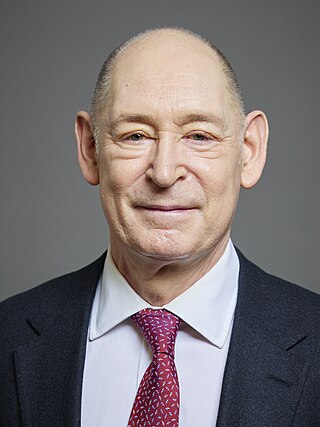
Terence Michael Elkan Barnet Etherton, Baron Etherton, is a British retired judge and member of the House of Lords. He was the Master of the Rolls and Head of Civil Justice from 2016 to 2021 and Chancellor of the High Court from 2013 to 2016.
The Tarner lectures are a series of public lectures in the philosophy of science given at Trinity College, Cambridge since 1916. Named after Mr Edward Tarner, the lecture addresses 'the Philosophy of the Sciences and the Relations or Want of Relations between the different Departments of Knowledge.' The inaugural lecture was given by Alfred North Whitehead in the autumn of 1919 and are published as his "The concept of nature."
Walter Ullmann was an Austrian-Jewish scholar who left Austria in the 1930s and settled in the United Kingdom, where he became a naturalised citizen. He was a recognised authority on medieval political thought, and in particular legal theory, an area in which he published prolifically.
The Lees Knowles Lectureship was established at Trinity College, Cambridge in 1912 and first started in 1915. Lectures are given by distinguished experts in military and naval history and selection for this lectureship is considered one of the highest honours available to specialists in military history and affairs. The lectureship was established by a bequest by Trinity alumnus and military historian Sir Lees Knowles.
Series 24 of University Challenge ran between 21 September 1994 and 29 March 1995. This was the first series of the show for eight years and aired on BBC Two for the first time, having previously been broadcast on ITV. Jeremy Paxman took over as presenter from Bamber Gascoigne, who had presented the show from its inception in 1962 through until 1987.
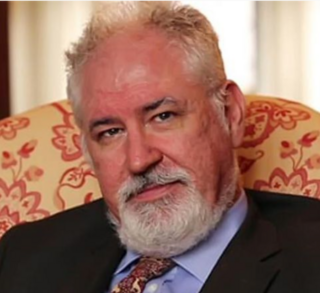
Andrew Philip McDowell Orchard is a scholar and teacher of Old English, Norse and Celtic literature. He is Rawlinson and Bosworth Professor of Anglo-Saxon at the University of Oxford and a fellow of Pembroke College, Oxford. He was previously Provost of Trinity College, Toronto, from 2007 to 2013. In 2021, claims of sexual harassment and assault by Orchard were publicized, which were alleged at universities where he has worked, including the University of Cambridge and the University of Toronto.
David Feldman is a professor at Birkbeck College, University of London. Feldman is director of the Pears Institute for the study of Antisemitism. His research relates to the history of minorities and their place in British society from 1600 to the current time.
Catharine Harmon Edwards is a British ancient historian and academic. She is Professor of Classics and Ancient History at Birkbeck College, University of London. She is a specialist in Roman cultural history and Latin prose literature, particularly Seneca the Younger.
Alexandra Marie Walsham is an English-Australian academic historian. She specialises in early modern Britain and in the impact of the Protestant and Catholic reformations. Since 2010, she has been Professor of Modern History at the University of Cambridge and a Fellow of Trinity College, Cambridge. She is co-editor of Past & Present and Vice-President of the Royal Historical Society.
Julia Mary Howard Smith, is Chichele Professor of Medieval History at All Souls College, Oxford. She was formerly Edwards Professor of Medieval History at the University of Glasgow. She is a graduate of Newnham College, University of Cambridge, and Corpus Christi College, University of Oxford.

William Lloyd Birkbeck was an English legal scholar at the University of Cambridge, who served as Downing Professor of the Laws of England from 1860 and as Master of Downing College, Cambridge 1885–1888.
Alexander James Carlyle, FBA was a British historian, social reformer and clergyman.
References
- ↑ "Past Birkbeck Lectures", Trinity College, Cambridge. Retrieved 15 February 2021.
